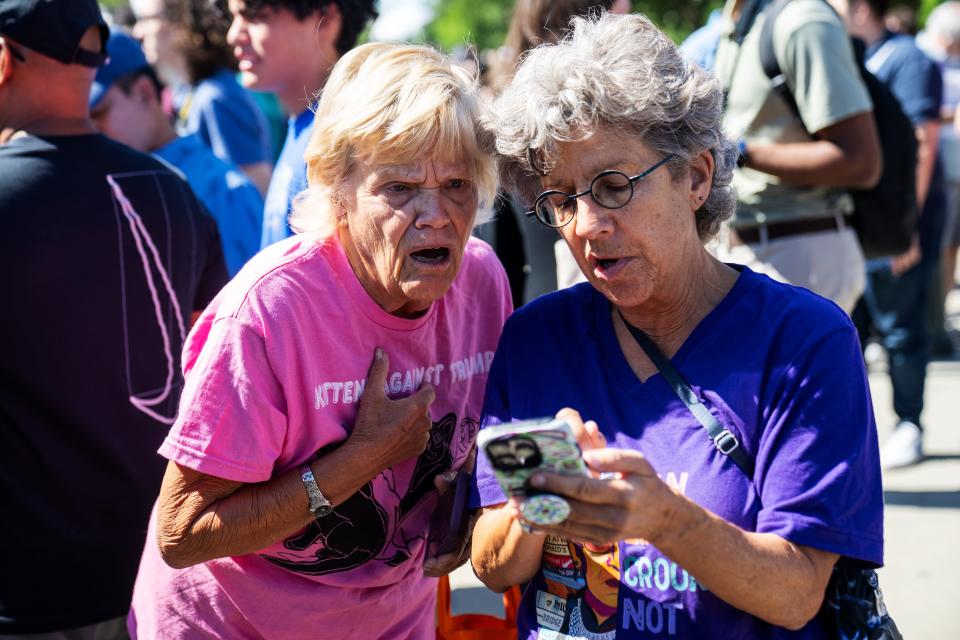What does the Supreme Court's immunity ruling mean for Trump's Georgia case?
- Oops!Something went wrong.Please try again later.
- Oops!Something went wrong.Please try again later.
In a landmark decision on Monday, the Supreme Court ruled that former President Donald Trump is partially immune from criminal prosecution for actions taken during his presidency.
What does this mean for Trump’s election interference case in Georgia? It’s likely that the justices’ ruling will affect – though not dismantle – the Fulton County criminal case.
The 6-3 decision in Trump v. United States was split along party lines, with the conservative justices ruling that presidents have “absolute immunity” for their “official acts.”
“The President is not above the law,” Chief Justice John Roberts wrote. “But under our system of separated powers, the President may not be prosecuted for exercising his core constitutional powers, and he is entitled to at least presumptive immunity from prosecution for his official acts.”
There was a caveat, though. Chief Justice Roberts concluded that “there is no immunity for unofficial acts.”
'A hard watch': Students at Georgia Tech, site of Biden-Trump clash, react to debate
The Georgia case, led by Fulton County District Attorney Fani Willis, alleges that Trump and his co-conspirators attempted to overturn Georgia’s 2020 election results.
In its ruling, the Supreme Court said it could not “neatly” determine whether Trump’s conduct in the aftermath of Georgia's 2020 election was "official or unofficial." That conduct includes the 10 felony counts Trump faces in the Georgia case.
The scheme included pressuring state officials to “find” the 11,780 votes needed to tip the election in Trump’s favor, as well as organizing a group of so-called “fake electors” to cast their ballots for the former president.
In addition to a charge related to the now-infamous call to Georgia Secretary of State Brad Raffensperger, Trump faces felony counts for racketeering, conspiracy to commit forgery, filing false documents, and conspiracy to impersonate a public officer.
The justices asked Fulton County Superior Court Judge Scott McAfee to determine whether Trump operated within the scope of “official” actions permitted by law.
“We … remand to the District Court to determine in the first instance − with the benefit of briefing we lack − whether Trump’s conduct in this area qualifies as official or unofficial," the Supreme Court said.

McAfee will also need to decide if Trump’s attempts to pressure Vice President Mike Pence to question Georgia’s election results fell within or outside of official duties.
Part of the Georgia case hinges on Trump’s effort to appoint a group of electors if Pence had gone along with Trump’s wishes and refused to count the official Democratic electors, according to CNN.
The Georgia case is currently on an indefinite hold as an appeals court reviews a ruling that allowed Willis to remain on the case after being embroiled in scandal. The case will likely not go to trial before the November presidential election.
This article originally appeared on USA TODAY: Supreme Court immunity ruling could impact Trump's Georgia case

